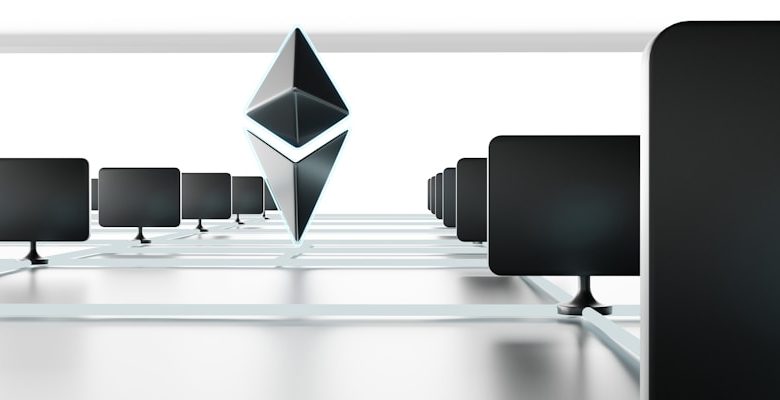The Role of AI in Enhancing Blockchain Technology

- Understanding the synergy between AI and blockchain technology
- Exploring the potential of AI in revolutionizing blockchain applications
- How AI is shaping the future of blockchain technology
- The impact of AI algorithms on enhancing blockchain security
- Innovative ways AI is optimizing blockchain transactions
- Challenges and opportunities of integrating AI with blockchain technology
Understanding the synergy between AI and blockchain technology
AI and blockchain technology are two powerful innovations that have the potential to revolutionize various industries. Understanding the synergy between these two technologies is crucial for unlocking their full potential.
AI, with its ability to analyze vast amounts of data and make predictions, can greatly enhance the security and efficiency of blockchain networks. By utilizing AI algorithms, blockchain systems can detect fraudulent activities, optimize processes, and improve overall performance.
On the other hand, blockchain technology can provide a secure and transparent platform for AI applications. By storing AI algorithms and data on a decentralized blockchain network, data integrity and privacy can be ensured, reducing the risk of manipulation or unauthorized access.
Together, AI and blockchain technology can create a powerful ecosystem where trust, security, and efficiency are paramount. This synergy opens up new possibilities for innovation in various sectors, from finance and healthcare to supply chain management and beyond.
Exploring the potential of AI in revolutionizing blockchain applications
Artificial Intelligence (AI) has the potential to revolutionize blockchain applications by enhancing their efficiency and security. By leveraging AI algorithms, blockchain technology can be optimized for faster transaction processing and improved data management. AI can also help in identifying and preventing fraudulent activities within the blockchain network, thus enhancing its overall reliability.
Through AI-powered analytics, blockchain platforms can gain valuable insights into user behavior and market trends, enabling them to make more informed decisions. This can lead to better customization of services and products, ultimately improving user experience and satisfaction. Additionally, AI can assist in automating various processes within blockchain systems, reducing the need for manual intervention and streamlining operations.
Furthermore, AI can play a crucial role in enhancing the scalability of blockchain networks by optimizing resource allocation and improving network performance. By utilizing AI-driven predictive modeling, blockchain applications can predict and adapt to changing network conditions, ensuring seamless operation even during peak usage periods. This can significantly improve the overall efficiency and reliability of blockchain systems.
How AI is shaping the future of blockchain technology
Artificial Intelligence (AI) is playing a significant role in shaping the future of blockchain technology. By leveraging AI algorithms, blockchain systems can enhance their efficiency and security, paving the way for more advanced applications and use cases.
One way AI is impacting blockchain technology is through the optimization of consensus algorithms. AI algorithms can analyze data patterns and make real-time adjustments to the blockchain network to improve consensus mechanisms, leading to faster transaction speeds and increased scalability.
Furthermore, AI-powered analytics tools can help identify and mitigate potential security threats in blockchain networks. By continuously monitoring network activity and identifying anomalies, AI can enhance the overall security of blockchain systems, making them more resilient to cyber attacks.
Another area where AI is making a significant impact on blockchain technology is in the realm of smart contracts. AI algorithms can help automate the execution of smart contracts by analyzing external data sources and triggering contract actions based on predefined conditions. This automation not only increases the efficiency of smart contract execution but also reduces the potential for human error.
Overall, the integration of AI into blockchain technology is opening up new possibilities for innovation and growth. As AI continues to evolve, we can expect to see even more synergies between these two transformative technologies, leading to a future where blockchain systems are smarter, more secure, and more efficient than ever before.
The impact of AI algorithms on enhancing blockchain security
Artificial Intelligence (AI) algorithms play a crucial role in enhancing the security of blockchain technology. By utilizing AI algorithms, blockchain systems can detect and prevent potential security threats more effectively.
One way AI enhances blockchain security is through anomaly detection. AI algorithms can analyze vast amounts of data to identify irregular patterns or suspicious activities on the blockchain network.
Furthermore, AI can improve the consensus mechanisms used in blockchain by optimizing algorithms for faster and more secure transaction validations. This helps in preventing unauthorized access and fraudulent activities.
Another significant impact of AI on blockchain security is in enhancing privacy protection. AI algorithms can encrypt sensitive data and provide secure channels for data sharing, ensuring that personal information remains confidential and secure.
Overall, the integration of AI algorithms with blockchain technology is a powerful combination that significantly enhances the security and reliability of blockchain networks, making them more resilient to cyber threats and attacks.
Innovative ways AI is optimizing blockchain transactions
AI is revolutionizing the way blockchain transactions are being optimized. By leveraging machine learning algorithms, AI can analyze large amounts of data in real-time to identify patterns and trends that can improve the efficiency and security of blockchain networks. One innovative way AI is enhancing blockchain transactions is through predictive analytics. This technology can forecast transaction volumes and identify potential bottlenecks before they occur, allowing for proactive optimization of the network.
Another way AI is optimizing blockchain transactions is through smart contract automation. Smart contracts are self-executing contracts with the terms of the agreement directly written into code. AI can analyze smart contracts to identify potential vulnerabilities or inefficiencies, helping to ensure that transactions are secure and efficient. Additionally, AI can automate the execution of smart contracts, reducing the need for human intervention and streamlining the transaction process.
Furthermore, AI is enhancing blockchain transactions through fraud detection and prevention. By analyzing transaction data in real-time, AI can detect suspicious activity and flag potentially fraudulent transactions before they are confirmed on the blockchain. This proactive approach helps to prevent fraud and protect the integrity of the blockchain network. Overall, the integration of AI with blockchain technology is unlocking new possibilities for optimizing transactions and advancing the capabilities of decentralized systems.
Challenges and opportunities of integrating AI with blockchain technology
Integrating AI with blockchain technology presents both challenges and opportunities for enhancing the capabilities of decentralized systems. One of the main challenges is ensuring the compatibility between the two technologies, as they operate on different principles and have distinct requirements. However, overcoming this challenge can lead to significant opportunities for improving the efficiency and security of blockchain networks.
One of the main challenges of integrating AI with blockchain technology is the need for robust data processing capabilities. AI algorithms require large amounts of data to function effectively, which can be a challenge in decentralized systems where data is distributed across multiple nodes. Finding efficient ways to process and analyze this data in real-time is crucial for harnessing the full potential of AI in blockchain technology.
On the other hand, integrating AI with blockchain technology opens up new opportunities for optimizing various aspects of decentralized systems. AI can be used to enhance consensus mechanisms, improve scalability, and enhance security measures such as fraud detection and threat prevention. By leveraging the power of AI, blockchain networks can become more resilient and adaptive to changing environments.



